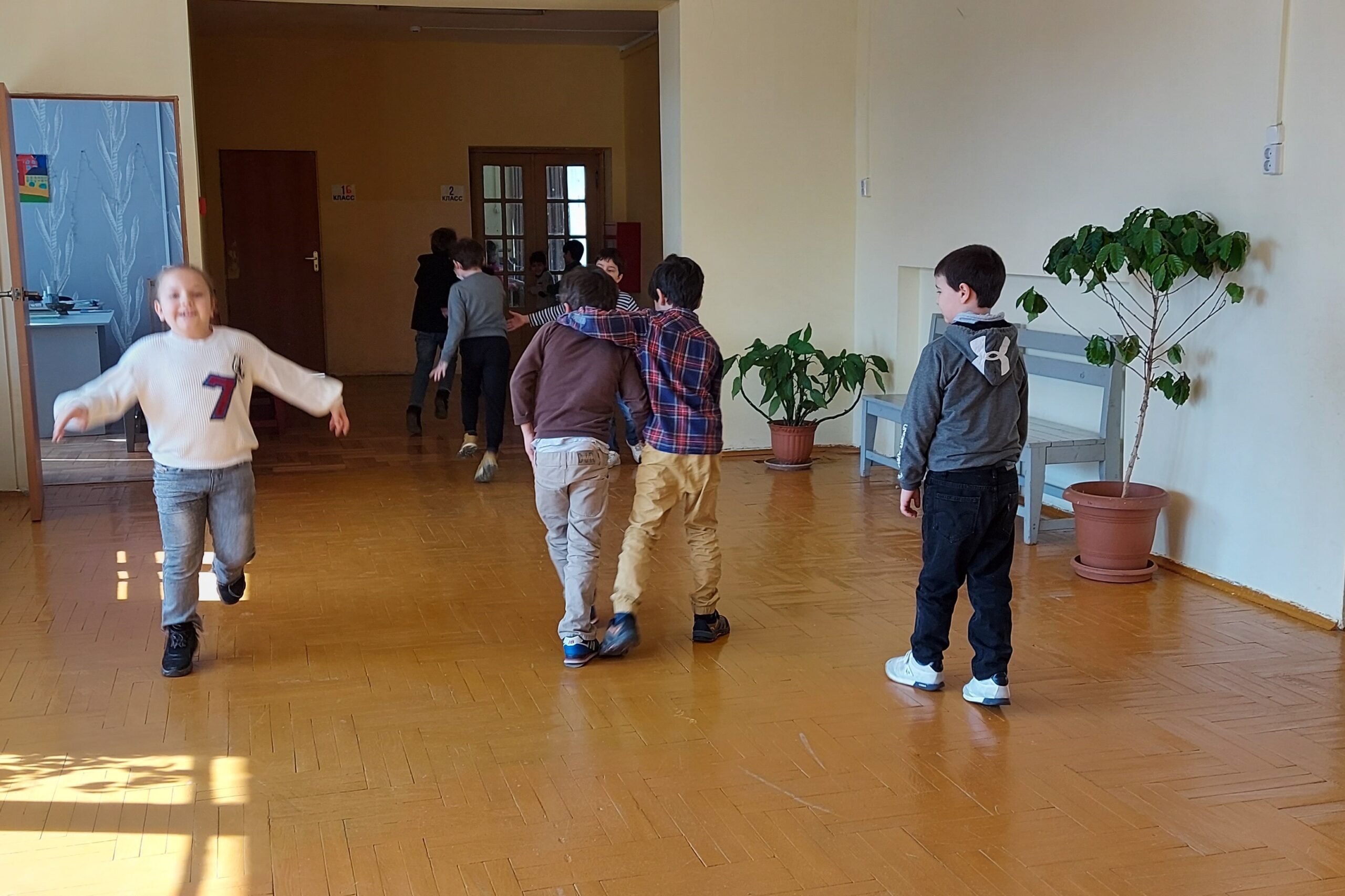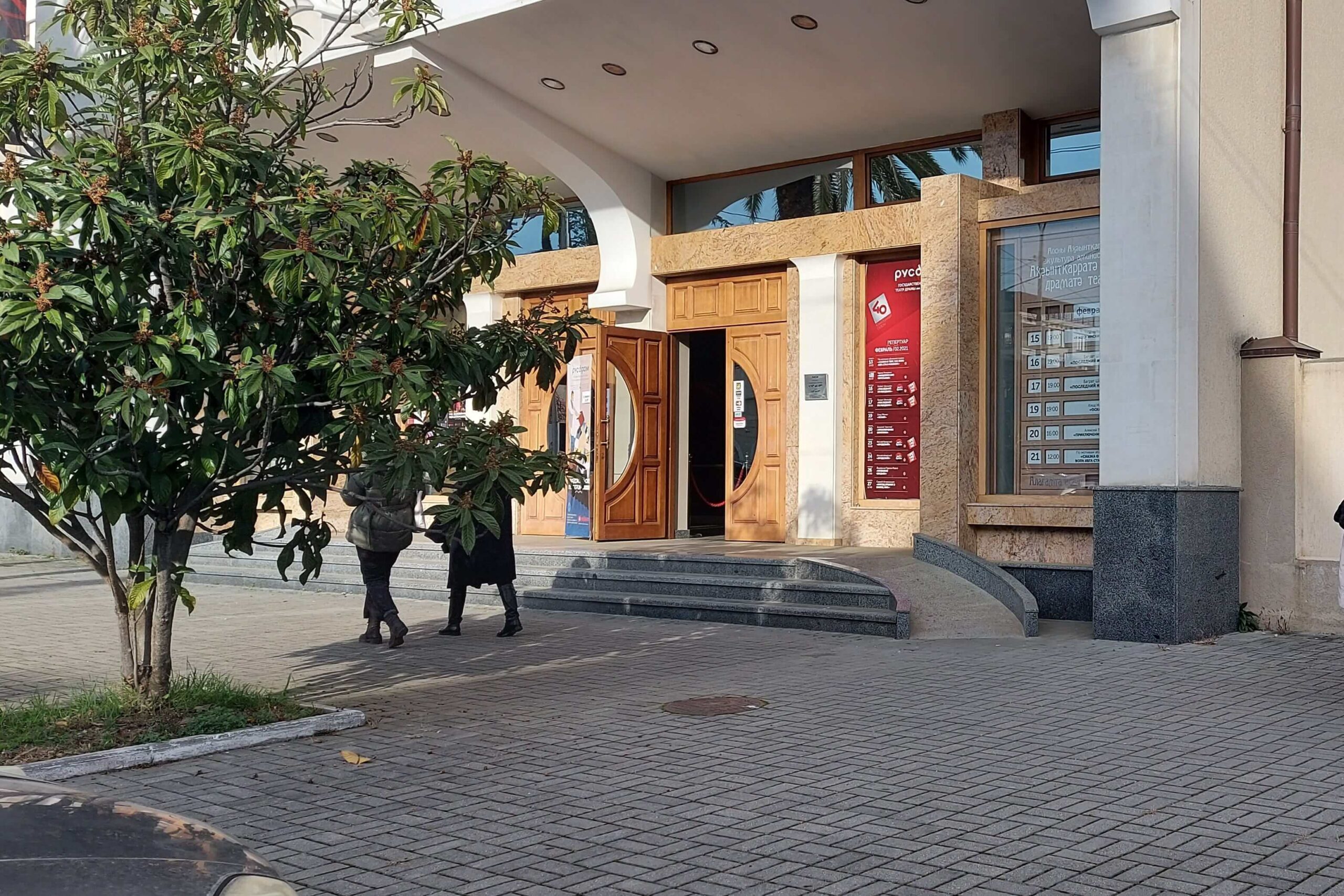
Putin signs decree simplifying process for Abkhazians and South Ossetians to become Russian citizens
The majority of Abkhazians and South Ossetians already have Russian citizenship.

As of 15 February, public schools, kindergartens, and some cultural institutions will reopen. There has previously been an outcry among parents in Abkhazia after their children were not offered alternative ways to learn following school closures.
‘There should be no more than 20 people in groups and classes. All children will have their temperature measured every day. The classrooms will be constantly disinfected’, Education Minister Inal Gablia explained on 9 February at a government meeting. At schools outside of Sukhum (Sukhumi), only students in grades 1 through 4 will be allowed to return to school.
If the number of COVID-19 cases in Abkhazia does not begin to increase a week after schools open, authorities will also consider allowing older students to resume attending school learning, Gablia added.
In Sukhum (Sukhumi), all students will be able to return to school but the schools will operate according to a new ‘three by three’ schedule, in which students will be divided into two cohorts, with each attending school three days a week. Grades 5 through 11 will attend on Thursday, Friday and Saturday, while grades 1 through 4 will attend on Thursday, Friday, and Saturday.
When all educational institutions in Abkhazia were shuttered on 15 October, there was no transition to online learning. In some schools, children were sent homework by mobile or electronically, other schools simply closed.
‘Online education is out of the question in most schools’, Mona Gumba, head of the Nationwide Parenting Committee, an Abkhazia-wide parents’ organisation set up in the wake of COVID-19 school cancellations told Abaza TV. ‘Not all children and teachers have computers.’
The sudden cessation of schooling has left many parents angry, particularly at teachers, some of whom began to offer paid tutoring after schools shut down.

‘They [teachers] are still being paid without having to work and they have more time for private tutoring’, Amina, a parent of two, told OC Media. ‘For teachers, this quarantine is like a gift from heaven.’
Private schools and kindergartens in Abkhazia have also continued to operate, and of those parents who could afford it, many have transferred their children into the private education system.
‘I really like the working hours in our private kindergarten, and how the teachers work with the child’, Inna Kakalia, a mother who sent her child to a private kindergarten after public schools closed, told OC Media. ‘The groups here are small, so my daughter does not get sick as often as in the usual one, where children sometimes sleep two to a crib.’
From 15 February cultural institutions, such as museums and theatres will be allowed to reopen, though with health and safety restrictions in place.
Markets will remain open under their previous COVID-19 schedule, with three days a week alloted for the sale of clothing, three days for the sale of food and groceries, and one day for the sale of sanitary products.
Undefined ‘mass public events’ remain banned, as are weddings. Athletic competitions are not allowed, as well as cultural events held outdoors.
It remains compulsory to wear masks on public transport and in enclosed spaces.

Abkhazian authorities have announced that they do not plan to ease any further restrictions until 10 March.
At a government meeting on 3 February, Chief Sanitary Doctor of Abkhazia Lyudmila Skorik, stated that while the number of COVID-19 cases is declining, it is not yet time to be optimistic.
‘Now the most epidemiologically difficult period is coming even without COVID-19’, she said. ‘The end of February is always associated with influenza and Acute Upper Respiratory Infection, now these diseases can become more severe and interact with COVID-19, so we need to protect children and the elderly.’
According to her, it is possible to speak of a steady trend towards a decrease in the number of cases only 28 days after the decline in new cases begins.
Vaccination in Abkhazia is expected to begin at the end of February, when the first batch of the Russian Sputnik V vaccine is expected to arrive. Abkhazian authorities requested 15,000 doses of the vaccine at the end of last year.
As of 11 February, Abkhazia had recorded a total of 11,869 COVID-19 cases, 10,867 recovereries, and 184 deaths.
The place names in this article are those of the author. For ease of reading, we choose not to use qualifiers such as ‘de facto’, ‘unrecognised’, or ‘partially recognised’ when discussing institutions or political positions within Abkhazia, Nagorno-Karabakh, and South Ossetia. This does not imply a position on their status.